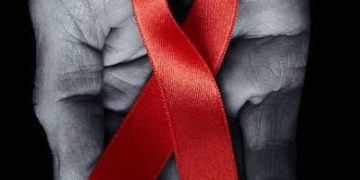
Mafeteng, Lesotho — When Maseabata Phasu, a 52-year-old woman, was first told she had high blood pressure, the advice was simple: “Just take these tablets and rest.” Months later, her condition had worsened, and she found herself at the district hospital.
Her story mirrors a new study by nurse researcher Lydia Limakatso Radebe of the National University of Lesotho, which highlights serious gaps in how primary health care nurses manage hypertension — one of the country’s leading causes of death.
The research surveyed 42 nurses from 17 clinics in Mafeteng. About four in five were women, most in their late 20s and 30s. Half held diplomas in general nursing and midwifery, while only a few had bachelor’s degrees. Nearly half had between 9 and 13 years of work experience.
Although about three-quarters of the nurses said they knew the steps to diagnose high blood pressure, only one in four could list them correctly. Confidence in starting patients on medication was low: fewer than a quarter felt ready to do so, while most admitted they had only “average confidence.” Training opportunities were also limited. Only six in ten had ever received training on blood pressure medicines, and most had attended just once. Nearly all were aware of Lesotho’s national treatment guidelines, but many used them irregularly — sometimes only once a year.
Knowledge of the medicines themselves was uneven. Nearly everyone could name diuretics such as hydrochlorothiazide, the country’s first-line treatment, but far fewer were familiar with calcium channel blockers, beta-blockers, or ACE inhibitors. About three-quarters knew treatment should begin at a low dose, though others thought it should depend on severity. One of the most worrying findings was that most nurses said they did not carry out routine lab tests before prescribing medication — checks that help track side effects and prevent complications.
For patients like Phasu, these gaps can be life-threatening. “I was given pills but never told why my pressure stayed high,” she said. “By the time they referred me, I was already weak.”
Uncontrolled hypertension is driving up strokes, heart disease, and kidney failure in Lesotho, which already has one of the world’s highest rates of high blood pressure. These illnesses place a heavy burden on families and the health system. The challenge is not unique to Lesotho: studies in South Africa and Kenya have found similar knowledge gaps among primary care nurses, particularly around drug choices and routine monitoring. Experts warn that without targeted support, countries across sub-Saharan Africa will continue to see rising cases of preventable heart disease.
The study calls for urgent steps: more regular training workshops rather than one-off sessions, stronger mentorship, updates to nursing school curricula, and the deployment of more specialised nurse clinicians in clinics. “Nurses are the backbone of Lesotho’s health system,” Radebe said. “But without the right knowledge, tools, and support, patients will continue to suffer. We must act now.”
For patients, the message is clear: high blood pressure may be a “silent killer,” but with better-trained nurses, every clinic visit could become a life-saving opportunity.



